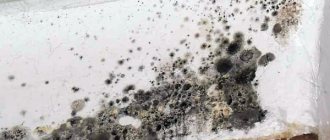Why does the water in the aquarium smell? This question is asked by every owner of the water world. Keeping fish is not as easy as it seems at first glance. Fish, like other pets, require attention, time, and compliance with certain rules of care and care.
Often, with proper care, which you can’t imagine better, an unpleasant smell of water in the aquarium still appears. It's unavoidable. Every pet has its own unique aroma. The case with fish is special, it’s worth figuring out: is it the water that “smells” or the tank itself?
Odor in the aquarium: causes
The small inhabitants of reservoirs are characterized by certain aromas. It follows that no smell can come from them at all. Accordingly, when approaching fish, we smell a not entirely pleasant smell. This is fine. BUT! If the smell grows and becomes more terrible, you need to take action.
The first step is to find out why the water in the aquarium stinks. The reasons for the odor are as follows:
- There are large amounts of food left at the bottom of the aquarium.
- Fish waste products in large quantities.
- Under-filtration of water or improper filtration.
- An unnoticed dead fish is rotting under the algae/rocks.
- The soil becomes acidic (hydrogen sulfide is released, which poses a mortal danger to the life of fish).
- Unscrupulous or untimely cleaning of the water world.
- Insufficient oxygen (problem in water circulation). When there is not enough oxygen, the water quickly becomes cloudy.
- Plant life is of poor quality.
- Oversaturation of the marine world with fish (not enough water per adult).
- Poor quality food, overfeeding pets (it doesn’t matter if the overfeeding was one-time or not).
- The appearance of silt in water/soil.
- The filter is clogged with food.
There are many reasons. It is important to identify them correctly and eliminate them in a timely manner. And the best thing is to predict.
Unpleasant smell of water in the aquarium and how to deal with it?
It is very simple to quickly deal with an unpleasant odor from an aquarium, and at the end of this article it is shown how, but if you do not understand the causes of the odor and do not eliminate them, this odor will appear again and again.
Read immediately about how to get rid of unpleasant odor from an aquarium >>>
So, first you need to understand the causes of the smell. It turns out that you can make a whole list of such reasons:
- When starting up the aquarium, the necessary bacterial cultures were not added to it
- One-time or chronic overfeeding of fish >>>
- During feeding, a lot of food is drawn into the filter >>>
- The soil in the aquarium is too coarse and a lot of food falls deep under the pebbles >>>
- Low quality feed is used >>>
- The aquarium is very overcrowded >>>
- The aquarium is not equipped with a suitable filter or the filter is not properly maintained >>>
- The water in the aquarium is changed incorrectly or the water is not changed at all >>>
- There is no aeration or water circulation of the required intensity in the aquarium >>>
- The soil in the aquarium is excessively silted >>>
- A large number of soil snails died at the same time in the aquarium
- A dead fish went unnoticed in the aquarium >>>
The water in the aquarium stinks, what to do, how to remove the smell?
So, why the water in the aquarium smells will have to be found out step by step, going through each of the reasons listed above. Start by cleaning your aquarium more frequently. If you are convinced that this was the reason, congratulations! You got off easy. If not, try changing your fish food. Perhaps the reservoir stank of rotten meat precisely because of the low-grade food. Remember, in order to give the fish new food in the morning, you need to change the water, clean the tank, and clean the filter. Nobody said it was easy!
And it didn't help? Well, give your pets a fasting day. Overfeeding is a direct consequence of the fact that the smell from the aquarium will be unpleasant. Or give the fish smaller, granular food so that they have time to swallow it at one time.
Further. Make sure there is enough space for all the fish in your tank. Move several fish of the same species to another location. It is a known fact: when fish are crowded, they excrete more feces, which have a characteristic (disgusting) odor. Please take this into account.
Experienced underwater holders use aquarium charcoal to eliminate odors. It is easy to use. Fill the filter and wait for the result. Specialized stores, in addition to coal, sell other products that will help you overcome the problem.
How to quickly remove unpleasant odors from an aquarium?
Finding out the cause of the pungent odor can only be done in a practical way. The same process will become methods for removing such aroma. To cope with the problem of how to remove unpleasant odor from an aquarium with minimal effort, proceed step by step, as suggested below.
Stage 1
Find out if the food is suitable for your fish. For this:
- Change the water in the aquarium.
- Buy another food.
- Try it for several days in a row.
- If the smell disappeared, this was the cause of the unpleasant aroma.
- If not, try changing the food a couple more times.
Important! If all the actions did not help, then the reason was not bad food. Continue to solve the question of how to remove the unpleasant odor from the aquarium.
Stage 2
If you are sure that the food is of high quality, perhaps you are simply giving your pets too much of it. Pisces are actually not so voracious and picky. Try:
- Do not feed the fish at all for a couple of days.
- Next time, add less feed than usual.
- Note whether the pungent odor is gone. If yes, the reason lay precisely in your wrong approach to diet.
Important! The essence of this phenomenon is that uneaten organic residues settle to the bottom and decompose there, mixing with the soil.
Stage 3
If you recently installed an aquarium and generally took up such a hobby for the first time, most likely you simply selected the wrong number of fish in pursuit of beauty. As a result, there is not enough space for all the living creatures, and each of them still tends to regularly excrete feces. The result: in a crowded and overcrowded aquarium, the water quickly becomes cloudy and acquires a characteristic aroma. The solution to this problem suggests itself - you will have to buy a larger or another one of the same size container-house for fish, or thin out the fauna.
Important! Take a good look at the aquarium - perhaps some of the fish have already died of natural causes and now their remains are decomposing, leaving you wondering: how to get rid of the unpleasant smell from the aquarium?
Stage 4
Improperly arranged decorative vegetation can also become a major problem when it comes to removing odor from an aquarium. In such a situation, proceed as follows:
- Contact the store where you purchased the plants.
- Provide them with a list of the species you have selected.
- Explain what size container you have and ask the seller to clarify which of these plant varieties emit an unpleasant odor.
- Replace the ones that are causing your problem.
Important! Such situations most often arise among owners of small aquariums. In large-scale structures, the impact of grasses is noticeably small.
Stage 5
Observe the behavior of the fish; perhaps you have chosen the wrong oxygen supply mode or the equipment is not working well. If the pets are not very active and tend to be closer to the bottom, this is definitely the problem. There is only one way to solve this:
- Install a better and more powerful compressor.
- Replace the filter with a more advanced forced circulation model.
- Invite a specialist to adjust the oxygen supply to the aquarium in the required quantity.
The water in the tank began to become cloudy and smells like a swamp: causes, prevention.
“Why does the water smell like a swamp? The whole underwater world smells like mud! The water in the aquarium has become cloudy! What to do? How to remove terrible odors? The answers are quite simple, if you are attentive, you have already received one. Let’s repeat and consolidate: insufficient amount of oxygen (water circulation problem). When there is not enough oxygen, the water quickly becomes cloudy. Fish burrow under stones and muddy the water. Proceed as follows: reset the aeration and clean the filter. Hydrogen peroxide also has the ability to saturate water with oxygen. It will be useful to purchase a device that measures the pH level of water.
The second answer is also given above: a large amount of peculiar feces released by fish due to crowded conditions and oversaturation in the tank. This causes the water to become cloudy very quickly. There is no need to talk about the fact that the water “smells”. Place the fish and clean the aquarium. In addition to oversaturation of the aquarium, the reason may be the following: the inhabitants are not compatible with each other. Then the same thing happens: copious discharge of disgusting-smelling feces.
When the pH level in the water is insufficient, the soil turns sour and silt appears. As a consequence, the appearance of hydrogen sulfide is inevitable. The presence of this substance in the tank will not bring joy to your pets.
In two out of three cases, the water becomes cloudy due to plants. There are two options here:
- There is not enough space for plants.
- There is plenty of space for plants.
Accordingly, you should offer them a new habitat: a larger or smaller aquarium.
In order to prevent terrible odors and cloudiness of the water in advance, you need to do the following: get aquarium “orderlies” (snails, speckled catfish, ancistrus and others). They will help keep the tank clean, beautiful, and healthy.
Cleaning products
In order to carry out high-quality cleaning of the aquarium from black mold, you must store the following products:
- Hydrogen peroxide – add 0.5 ml/liter of water to water daily;
- White - dilute it in water in a concentration of 1:30 and thoroughly rinse the plants along with the roots in the resulting solution. Before washing, be sure to check the resulting concentration. To do this, place 1 leaf in the solution for a few minutes and monitor its condition; if it turns pale, add another 10 liters of water to the composition and repeat the experiment;
- Sidex or glutaraldehyde is a kind of plant growth stimulator due to increased production of CO2, however, if the concentration is exceeded, it can act as a powerful aldehyde that destroys unnecessary vegetation. For this reason, when fighting mold, you should strictly adhere to the instructions for the drug.
- Antibiotics - Penicillin, Erythromycin, Streptomycin. Can only be used in extreme cases. To choose the best antibiotic for your aquarium, you will need to test each of them. To do this, remove the mold from the surface of the water into a large bowl and, having dipped strips of filtered paper into each type of antibiotic that needs to be dissolved in advance, place them on the surface of the mold. Place the bowl in a warm place for several days, after which, examine which leaf, under the influence of the antibiotic, has formed the least amount of mold.
When following the above procedures, the chances that mold will reappear in the aquarium will be negligible.
It’s the tank itself that “smells,” not the water: how to get rid of the terrible smell.
You did all the cleaning work in good faith, you didn’t forget anything, you checked everything, but the unpleasant aroma remained. What to do, what to do?! Check that you have washed the aquarium lid and cover glasses. They have this feature: they accumulate aromas. Absorb like a sponge. In addition, due to high humidity, colonies of bacteria and algae can grow inside the lid. Food may leak between the glass panes. Over time, the smell will appear from this. Residues of dry food may accumulate on the lid and not reach the fish. It is also necessary to combat all these factors. Don't forget about these little things.
Caring for fish is a complex matter, requiring time, attention, patience, and proper equipment. The life and health of marine life is in your hands. Only you can decide what the life of the tank will be: healthy, blooming and smelling, or dirty, sick and having terrible odors.











